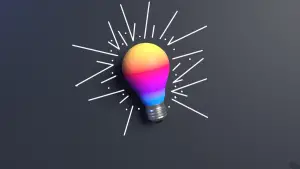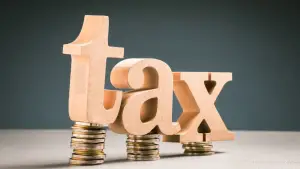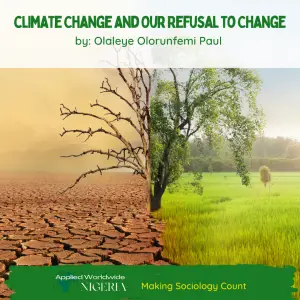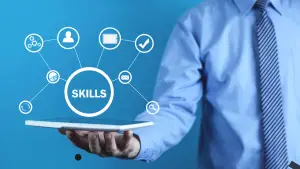When President Muhammadu Buhari passed the Discrimination Against Persons with Disability (Prohibition) Act 2018, a lot of people, particularly in the disability community felt that this was going to be the deal breaker. That people with disabilities would now be able to live a life devoid of stigma.
The act even led to the establishment of the National Commission for Persons with Disabilities (NCPWD). An agency empowered by the federal government to promote, protect, and prioritize the rights of persons with disabilities.
Nearly five years later, the agency is still grappling to achieve an inclusive society. Where rights, privileges, aspirations, development, and equality of opportunities for persons with disabilities are guaranteed.
Statistics say 11 percent of Nigeria’s population are disabled. This means that one in every eight Nigerians live with at least one form of disability.
Despite this figure, not much progress has been made in upholding their rights and providing equal access to opportunities.
While human beings are poised to classify people based on some indicators we think have become constant, it doesn’t make our assumptions right.

Stereotypes are not just mostly inaccurate, but unfounded.
We think we know all there is to know about persons with disabilities when in reality, the ‘much’ we think we know was fed to us by the media, which on another hand has played a huge role in promoting ignorant attitudes toward the concept of disability.
Name-calling, misconceptions, and ignorant beliefs are realities faced by persons with disabilities.
This unequal access has cross-cutting effects, denying them the opportunity to participate on equal ground with those without disabilities, particularly in the areas of education, employment, politics, and even day-to-day activities.
Stereotypes not only promote inequality, it also build up misconceptions and further exclude persons with disabilities in society.
These stereotypes do not allow us to acknowledge that persons with disabilities have unique qualities, thereby limiting their identities to just their disabilities.
We often forget that the lives of persons with disabilities don’t start and end with their limitations. They have interests and talents. This is why we are left in awe when we see people with disabilities undertaking tasks that we see as ‘normal’ for those without disabilities.
In reality, those who we celebrate may just be the lucky few who have been allowed to make their talents known or even allowed to hone those skills.
Our prejudices against people with disabilities are evident in the way we speak to them, speak about them, act with them, and act towards them.
These stereotypes cloud our judgment, making it difficult for us to see persons with disabilities as going beyond the myths and stereotypes we have grown to believe in.
This piece is therefore necessitated by the need to recognize and respect the rights and needs of persons with disabilities.
Common stereotypes associated with people with disabilities
- Disabilities are associated with a lack of competence: We have taken it as a norm to treat people with disabilities with pity. More often than not, we use condescending language when we speak to them. One thing I have noticed, however, is that people with disabilities do not like to be coddled. While we often see them as dependent, they may find it demeaning.
Some see persons with disabilities as overly demanding when in fact, their condition mandates that they need certain structures to be able to function effectively. Next time a person with a disability demands treatment beyond what you have on your menu, just remember that in a sane society, that is not you doing them a favor but fulfilling the principles of equity. Which demands that everyone be given the right tools to reach their potential. - Persons with disabilities live unhappy lives: This is untrue as people with disabilities usually, always find a way around their challenges. While a temporary disability like a broken arm or leg can be a source of inconvenience for you, people with disabilities treat their impairments differently. They know what limitations might arise from this and so, find ways of living with them.
- Disabilities are spiritual diseases: Poverty and ignorance have played a major role in perpetuating this notion that all forms of disabilities are spiritual. An alarming insinuation that has continued to thrive is the notion that disabilities are a repercussion for a wrong done by an individual. It is not uncommon to find parents dissuading their wards from associating with other children who have a neurological condition. It’s not uncommon for people to accuse parents of children with disabilities of engaging in diabolical activities. The result of which they assume is the child with a disability.
- Persons with disabilities are all alike: We also overgeneralize, assuming that persons with disabilities are all the same when in fact, they are not. While an individual with visual impairment can still listen to a lecture if he is guided to find his way into a classroom, another individual with oratory impairment who can walk down the hall if it has the highest number of stairs would not understand a thing being said save for the aid of a translator. This shows us that the needs of persons with disabilities aren’t a one-fits-all situation.
Impact on Individuals and Society
The consequences of these myths and stereotypes include the fact that they hinder social progress and limit opportunities for disabled individuals.
This can easily lead to issues of low self-esteem among people with disabilities.
Our unfounded views not only lead to discrimination against disabled persons but also give room for their exclusion in society.
For example, when we assume that persons with disabilities are always dependent, we begin to see caring for them and interacting with them as a chore.
While a teacher or an institution of learning could view the education of people with disabilities as twice the hard work of those without disabilities, others may not like to interact with them because they do not want to have to do everything for them.
In Nigeria, our systems and structures, especially in public places, are so unfriendly to persons with disabilities. That they have to think twice before making mundane decisions such as going out of their homes for the day or even choosing events to attend and those not to.
I recently met a lady with a disability who confessed to reducing water intake days before an event she was supposed to attend due to the thought of accessible toilet facilities for her.
This made me realize how unjust our system is to persons with disabilities.
Why we must address these misconceptions
Building a just and equitable society demands that every member of that society is allowed to live his or her life without any bias controlling how they are treated by society.
A defining tool for an inclusive society is that it does not marginalize persons with disabilities. In an inclusive society, persons with disabilities are not segregated from others. To begin with, an inclusive society does have a ‘them’ and an ‘Us’.
Instead, every member is allowed to participate in every aspect of that society. Their disabilities are not seen as a limitation but instead, they are put into consideration in every decision which supposedly concerns the entire populace.
When decisions are made by those at the helm of affairs, that individual with a visual impairment is considered. Even at the community level, an inclusive society looks out for those with disabilities.
In an inclusive society, persons with disabilities are put into consideration in the areas of access to education, public services, employment, civic roles as well as access to healthcare.
Furthermore, an inclusive society grows because it is ready to accept the contributions made by every member irrespective of whether they have an impairment or not.
An inclusive society is devoid of stigma and discrimination because it respects and also, has empathy for persons with disabilities. This understanding of their unique circumstances allows us to treat them respectfully. It’s easy to understand that oftentimes, our prejudices regarding persons with disabilities are promoted by a lack of understanding of their disabilities.
An inclusive society understands that being fair to all parties is ethical.
When every member is allowed to make his contributions and also most importantly, allowed to reach the peak of their abilities without prejudices breaking them down, we will have a vibrant society with multiple outlooks and contributions from its members.
How we can promote inclusion?
Our perceptions regarding persons with disabilities must evolve in our quest for inclusion. Achieving inclusion in turn lies in breaking down these stereotypes and myths. We must also recognize the roles different stakeholders play in promoting prejudice and discrimination against persons with disabilities.
This will enable us to understand how we can right our wrongs.
Role of the media: The media plays an important role in changing perceptions. Undoubtedly, the media has played its part in promoting these prejudices that have led us to discriminate against persons with disabilities. It has therefore become imperative for the media to right its wrong by correcting this narrative. The media has portrayed persons with disabilities for too long as victims of life’s cruelty.
It isn’t all gloom and hardship for persons with disabilities.
In Nigeria’s media space, a person with a disability finding love can easily be scripted for a blockbuster movie when in reality, this isn’t an achievement. We find this happening because we assume that the lives of persons with disabilities aren’t worth much, making endeavors like marriage and a career seem like a feat.
Role of the government
The government must also prioritize the rights of persons with disabilities. We must begin to see policies that take cognizance of their every right and also, legislation that would discourage discrimination against persons with disabilities. While Nigeria already has one, not much has been done in terms of implementation.
Also, persons with disabilities must be included in the decision-making process, especially on issues that affect them.
Non-governmental organizations must also come in to champion the cause for inclusive education, accessible infrastructure, and promoting the empowerment of persons with disabilities.
Also, more efforts are needed to destigmatize disabilities by enlightening the public.
This is in addition to supporting the government with data that would guide it in making decisions as it affects persons with disabilities.
Furthermore, finding comprehensive solutions to the plights of persons with disabilities requires a partnership between the government, partners, and most importantly, the disability community.
Decisions must not be made based on assumptions. Instead, decision-makers must take into cognizance the needs and priorities of persons with disabilities and even their caregivers.
Conclusion
These myths and stereotypes about persons with disabilities have been allowed to strive for so long that we no longer recognize that we hold and exhibit these prejudices against them.
Families are being forced to isolate members with disabilities simply for the reason that society has failed to acknowledge and understand our disparities.
We must therefore dispel the myths and stereotypes so we can create an environment devoid of discrimination.
When we can look beyond these seeming limitations to accept that they also have potential, we will be on our way to a more just and inclusive society.






